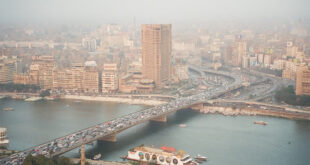The grizzled editor squinted at me through a haze of gray smoke from the omnipresent cigarette protruding from his thin lips. He glared at me with a mixture of chagrin and condescension after my suggestion that some day I would like to write books. The Pall Mall bobbed as he groaned through clenched teeth: "Within every reporter there's a book. And, son, that is where it ought to stay!'
That crusty editor, a war correspondent during World War II for Yank and The Stars and Stripes, is gone now, but his message lingers every time I pick up a "memoir" from a 40-something reporter recounting his full and flavored life that coalesced around a seminal event that allowed him or her a special insight into the meaning of Life that must be shared.
Nothing could be more defining for an individual than war. The current pop phrase, "the fog of war," popularized by Robert McNamara's book and documentary by Errol Morris, might be accurate in describing a moment of confusion or disorientation--morally as well as geographically--but the overview of war seems to be the opposite. War adds clarity to an individual's contradictory principles and theories; it defines purpose for front-line combatants beyond mere survival; and it extends philosophical reasoning beyond the battlefield or insurgent's stronghold, often reshaping ideologies of how humans ought to treat each other. The bigger the war, the more reshaping that takes place.
The Mystique of War Journalism
Perhaps the most mythical of all jobs in news media is that of a "war correspondent." Never mind that ante bellum he or she might have been covering a police beat, city council, state government, or federal agencies for a living. Once the shots and missiles start flying our flack-jacketed hero or heroine is primed and ready to report the war news for the folks back home. Lucky is the reporter who lands this task for a big newspaper or big broadcasting company. Name recognition is sure to follow, and close behind that is the book deal that lets them personalize the war they are covering, mostly about them personally or how the war ought to have been fought if only the strategists would have consulted the writer first. That seems to be the vein of Phillip Smucker's pre-election book that blames the Bush administration for not getting Osama bin Laden.
Not that the job is without risks. War correspondents fell at an alarming rate during the Afghanistan war. In fact, during the first month of the operation there more journalists died than coalition troops. In fact, journalists have been killed at a record pace around the world this year. Over 100 have died so far in 2004, according to the International Federation of Journalists, up from 83 in 2003 and 70 in 2002, covering wars, insurrections, and civil disorders. This element of mortal danger adds to the mystique of the foreign correspondent, especially in time of war.
Fact is, the public loves war correspondents, much to the chagrin of those reporters who daily grind away at their computers or painstakingly check every fact in an obituary of an ordinary citizen, or the proper spellings in a high school honors list. Covering armed conflict is serious business, maybe the most serious of all. War correspondents are the super stars, the pop idols for their generation of news junkies. In some cases, they are bigger than the stories they are covering.
Not everyone back home universally reveres them or the job they do, however. In the 1991 Gulf war, CNN's Peter Arnette was accused of giving aid and comfort to Saddam Hussein's regime and acting as a shill for the Iraqi propaganda machine, a charge he flatly denies in his book, Live from the Battlefield. Similar charges were leveled at him in the 2003 Iraq war, leading to his sacking at NBC. Harrison Salisbury of The New York Times reported from North Korea during the Korean War (1952-56) and from North Vietnam during the Vietnam War (1965-75). To this day, rightly or wrongly, U.S. POW's blame Salisbury for prolonging their agony in North Vietnamese prisons. Competitive pressures can contribute to internecine squabbles in the journalism profession, like the time New York Post reporter, Andrea Peyser, once described Christiane Amanpour as "that CNN war slut" eliciting a rare apology from Post publisher Rupert Murdoch, whose Fox Network was in a ratings war with CNN at the moment.
The Silver Screen and War Correspondents
Foreign war correspondents have been the subject of film portrayals extending back to the 1930's when Joel McCrae was giving the Nazi's grief in Hitchcock's 1940 Foreign Correspondent. Low-key actor Burgess Meredith portrayed a well-known World War II correspondent in the 1945 Story of G.I. Joe, which featured nine real-life war wire service correspondents of the era. Mel Gibson played an Aussie reporter during the tense moments of a 1960's Indonesian insurrection, in the 1983 Peter Weir classic, The Year of Living Dangerously.
Some correspondents became part of the story, as in John Reed's coverage of the Bolshevik Revolution (Ten Days that Shook the World). A socialist who barely concealed his ideology in his writings, Reed, played by Warren Beatty in the 1981 Oscar-winning, Reds, is the only American buried in the Kremlin. And there were the countless Lowell Thomas news reels making heroes and villains out of ordinary people in extraordinary times and places, like T.R. Lawrence of Lawrence of Arabia fame, and that quintessential non-violence advocate, Mohandas Ghandi. Then there are fictionalized accounts such as Nick Nolte as an objectively challenged war photographer in Nicaragua in Under Fire (1983), while in a neighboring country quirky actor James Woods was scratching out stories about death squads in Salvador (1986). There even novels about war correspondents, such as Masha Hamilton's heroine who suffers her correspondent-lover's loss while covering the Palestinian Intifada.
So, like so many things, Hollywood can be blamed for glamorizing the war correspondent; of making this type of news reporter the top dog in the journalism game, and giving an opening to the war correspondent to tell the whole story. My crusty old editor would have wondered what the heck they had been doing. Weren't they sent to that foreign war to cover it fully and honestly for the readers back home? He would not have looked kindly on the new "kiss and tell" books by journalists who tell their readers that they could have done a better job had they not had so many thick-headed editors, gutless headline writers, and tight-fisted company accountants to deal with. Such is the style of BBC's John Simpson's latest tome, Simpson's world: dispatches from the front lines. In a similar self-serving vein is William Tuohy's book that reviews his coverage of the 1982 Falklands War, among his other adventures, and Anne Garrels' offering about 2003 Iraq war.
How did covering war, armed only with pencil and camera, become equated in the public mind with heroic soldiery actions during a war?
A Cult of Strong Personality
Some of literature and journalism's most colorful characters were at one time or another war correspondents. One of the first, according to Philip Knightley, whose latest edition of The First Casualty is updated to include the Iraq wars, was William Howard Russell, who covered the Crimean war for the Times of London (1854-5). Prior to that newspapers depended on sporadic government handouts and occasional diarists' accounts of events in war. Russell professionalized the war correspondent job by also covering the Indian Mutiny (1858), American Civil War (1861-2), the Austro-Prussian War (1866), and the Franco-Prussian War (1870-1). The art of war reporting was refined during the American Civil War (1860-65), as reporters used the latest technology of the time to report from the battlefield. A few of them became well known for their war coverage or, in the case of Mathew Brady, for their use of photography. Another writer of renown, Karl Marx, was also filing Civil War dispatches from London for the New York Herald, though most were likely written by his collaborator, Frederick Engles. Perhaps in some ways surprisingly, the revolutionary Marx favored the capitalist North over the agrarian South, which was also contrary to England's sympathies for the cotton-producing Confederation.
According to separate books by Philip Knightly, Nathaniel Lande, and John Seelye, the prototypical war correspondent from America was Richard Harding Davis, a flamboyant international correspondent who covered the Greco-Turkish War (1896), Spanish-American War (1898) and Boer War (1900) and the Russo-Japanese War (1904), where he saved the professional life of a young Jack London, who was covering his first war. Davis, who had also saved Stephen Crane's life in the Spanish American war, had an aristocratic bearing that allowed him access to generals and diplomats. He, would influence a generation of war correspondents covering World War I (1914-18), the Chaco War between Bolivia and Paraguay (1932-35), and the Spanish Civil War (1936-39), and World War II (1939-45) including Ernest Hemingway, Walter Cronkite, and a cadre of broadcasters who were later dubbed "Ed Murrow's boys" after the CBS godfather of broadcast news, Edward R. Murrow.
Two other war correspondents at the turn of the 20th century left their mark on the profession, and one left his mark on the world. The first was Charles Edward Woodrow Bean, an Australian, who accompanied the New South Wales Light Horse Regiment to Egypt, then to Gallipoli, Turkey, where he reported on the unnecessary carnage to Anzac troops, sustained a wound, and demonstrated considerable heroism that went undecorated because of his civilian status. The second man was Winston Churchill, the only war correspondent ever to lead a country in time of war, albeit nearly four decades after his heroics in South Africa's Boer War. Churchill, of course, parlayed his fame as a war correspondent into a political career.
Broadcasters Move into Spotlight
While fame came grudgingly to print journalists, many of them writing for local or regional dailies, World War II did produce a bona fide war correspondent giant who rivaled Murrow in popularity--Ernie Pyle, a slightly built, balding, unassuming, personally complex man, who was the original embedded reporter, living and sleeping with soldiers and telling the "G.I. Joe" stories to the folks back home though syndication in nearly every daily newspaper. Pyle, whose columns filled several books, was also the subject of a half dozen more. He was killed by a sniper's bullet in the Pacific shortly before the war ended.
One of "Murrow's Boys" was a young print journalist-all of the early broadcasters learned their trade behind a typewriter in those days-named William L. Shirer, reported from Berlin during the first part of the war and later published his journal. Mark Bernstein and Alex Lubertozzi recount Murrow's broadcast days from the skyline of London during the blitz, in a book that should be required reading by broadcast journalism students on how to get the story right.
The television war has marked a turning point of sorts for books. Now they seem more to be about the journalists themselves than the story they were paid to cover. Another CBS broadcaster, Charles Osgoode, with tongue firmly in cheek, took notice of this personal trend in his nostalgic memoir, Defending Baltimore against Enemy Attack: A Boyhood Year during World War II, which charmingly recalled his pre-teen years on the home front. A similar work by Gardner Botsford should satisfy the champagne and brie set on how gentlemen cover international conflicts.
It remains to be seen whether Arabic broadcasters will follow the trend. Certainly, there are some stars emerging at Al Jazeera and Al Arabiya who one day will set down their thoughts about war coverage from the Arab point of view. There most assuredly is enough material and controversy surrounding the job they do. At present the Arabic broadcaster's voice has not been translated to the written page.
In that regard my old editor's advice might have been wrong. Maybe the books within Arab journalists should come out, so this valuable perspective draws the attention it richly deserves. There seems no shortage of books about Al Jazeera. New ones are set for release in 2005. But so far, the inside story journalists seem so fond of telling, is lacking in the Arab world, and the rest of the world is eager for that perspective.
 Arab Media & Society The Arab Media Hub
Arab Media & Society The Arab Media Hub




